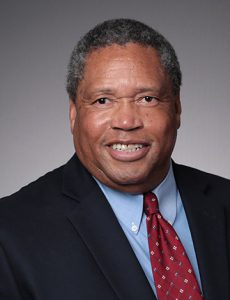The list of considerations can be long when buying an income property in the Puget Sound region. Whether it’s a multifamily, small commercial or mixed-used property, income property buyers must understand the risks and rewards that come with this specific type of purchase. If that weren’t enough, the math on investments is changing as The Federal Reserve continues to raise rates in response to inflation and other economic inputs.
There’s no question that as the rates for conventional mortgages are on the rise, even the boldest income property investors are feeling cautious about the market.
Income property investors need not be fearful however, as the right set of strategic tools can help make the best of their investments. Especially for those in the market to invest in 1 – 4 residential properties – single family homes, duplexes, triplexes and fourplexes – there are still competitive ways to finance your investment without paying premium rates.
One consideration is the Adjustable-Rate Mortgage (ARM). As conventional rates continue to rise, many are turning to ARMs because of the lower rates they offer for a fixed period of time – usually 5, 7 or 10 years – compared to a conventional 30-year fixed mortgage.
Not all ARMs are created equal, though, and income property investors should consider some basic guidance to get the most from their strategic investments.
3 key strategies for getting the most out of your ARM
Understand your lender’s interest rate ceiling
A well-known risk of ARMs is that at the end of the fixed-rate period, ARM loans are subject to rate adjustments, which can be significantly higher than the original ARM rate.
There is a wide range of options for how a lender increases interest rates after the initial fixed period is complete, in addition to how much the rate can adjust over the entire lifetime of the loan. Some banks allow a modest increase at initial adjustment, while others may default to an initial increase up to the lifetime cap. The lifetime cap is the maximum interest rate allowed on an adjustable-rate mortgage, which most lenders set at 5% or 6%.
Look for a bank that keeps the initial adjustable interest rate ceiling low. For example, some lenders cap the maximum loan rate increase to 2% after the initial fixed period.
Gain a clear view of pre-payment penalties
Often times with an ARM, investors choose to pay off their mortgage early to take advantage of low fixed interest rates. If a loan is paid off or refinanced during the prepayment penalty period, investors could owe additional fees or a penalty, which is typically a percentage of the outstanding loan balance.
Some lenders offer pricing options that do not include prepayment penalties. Take the time to understand your bank’s approach to pre-payment penalties in their loan agreements. If they only offer rates with a pre-payment penalty, investors have options and should look for a lending institution that has options for penalty-free pre-payment of their loan.
Compare community and larger lending institutions
Large, nationwide banks and lenders can compete in the consumer lending market with attractive rates. But community banks, like Pacific Crest Savings Bank and others in our area, offer several advantages beyond rates alone for investors looking to structure unique financing packages – while also keeping the bank’s assets in the local economy.
Investors with complex circumstances may find that with a community bank, the lender may understand their clients’ needs more intuitively, and are able to close deals more quickly because decision-making happens on a local level.
Community banks also often have flexibility to tailor their products and services to clients’ needs and are motivated by working collaboratively to propel growth among small businesses in the local area.
Even as the list of considerations for income property investors gets longer, there’s still plenty of opportunity to be successful in the Pacific Northwest. From single family residential to small commercial real estate and everything in between, there are financing options that will fit both short and long-term needs for local investors.
Learn more at www.paccrest.com.
Content Source: Johnny Smith, Pacific Crest Savings Bank, Vice President and Residential Loan Officer

Johnny Smith is a vice president and residential loan officer at Pacific Crest Savings Bank, a local and independently owned savings bank headquartered in Lynnwood, Washington, that has served Northwest businesses and individuals with personalized banking and lending services since 1984.
With expertise in both real estate lending and title insurance, he offers a valuable combination of insight to help solve clients’ unique challenges and opportunities. As a vice president and residential loan officer, he provides portfolio loans for residential properties and floating homes, tailoring the bank’s solutions to meet his clients’ needs.
Outside of the bank, Johnny enjoys spending time outdoors – especially camping with his wife, children and grandkids.
Feel free to contact Johnny Smith at (425) 670-9624 or jsmith@paccrest.com. Please do not include sensitive or confidential information in your message.
Author: Lynnwood Times Staff













One Response